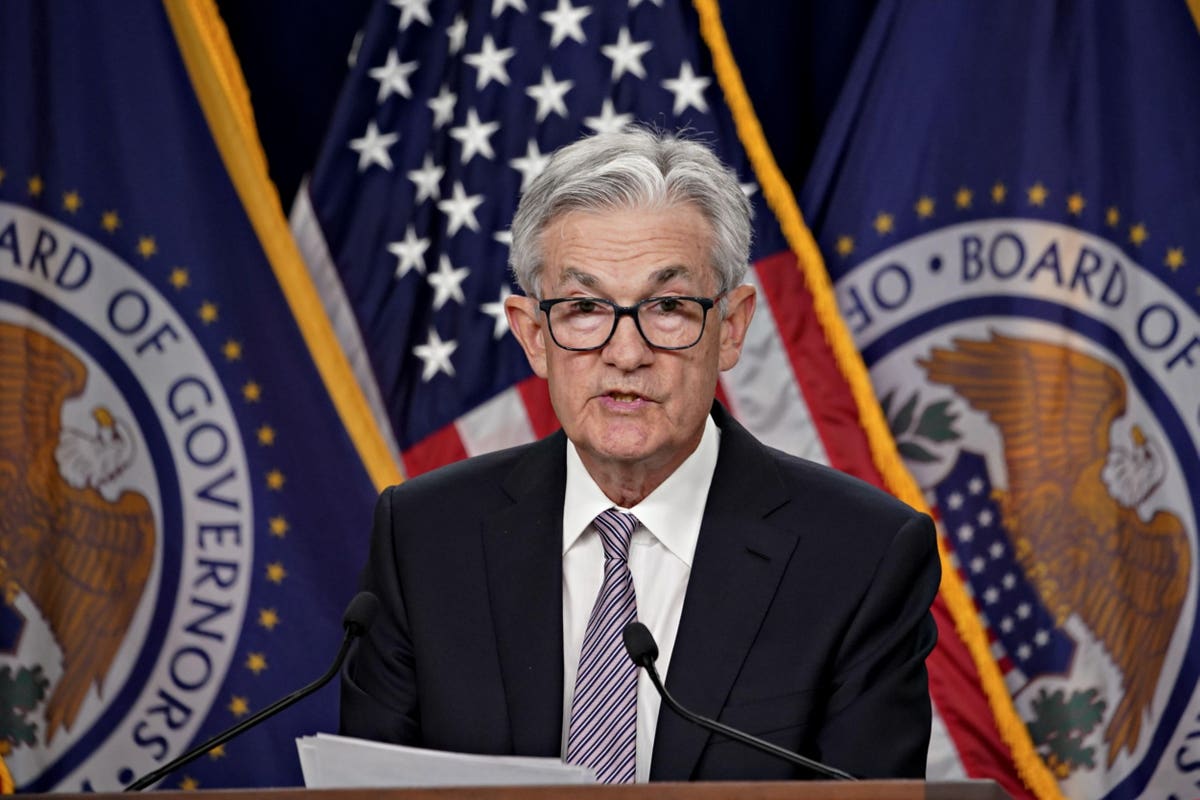Markets expect the U.S. Federal Reserve will likely hold rates steady at 5% to 5.25% when they next meet on June 13-14, with some small chance of a another hike. At a speech in Germany on May 12, Fed Governor Michelle Bowman largely mirrored this assessment saying, “In my view, our policy stance is now restrictive, but whether it is sufficiently restrictive to bring inflation down remains uncertain.”
Inflation
The problem the Fed is facing is that inflation is still too high. Recently CPI inflation dropped below a 5% annual rate, but that’s still above the Fed’s 2% target. Even though headline CPI inflation is declining from peak levels reached last summer, core inflation, which strips out food and energy has stayed stubbornly high and that’s a big concern for Fed decision makers.
There will be another CPI reading for May released on June 13, coinciding with the start of the Fed meeting. There’s some chance that as high inflation from last year rolls off the 12-month series and if shelter costs continue to decelerate, the inflation may move lower, but it’s unlikely to be a big enough move to placate the Fed.
Jobs
With unemployment close to decade lows at 3.4% the Fed has been free to worry about inflation. It’s a hot jobs market according to the data. That said, jobless claims are rising. Recently, jobless claims, which can be a volatile series, hit levels not seen since October 2021. If unemployment did rise materially, then the Fed would have a dilemma between holding rates high to beat inflation and dropping them to help the jobs market. So far the Fed hasn’t had to worry too much about that potential trade-off.
Markets vs. The Fed
For much of 2023 so far the markets have expected the Fed to change course and plan for rate cuts. It hasn’t happened. The Fed has continued to raise rates steadily, and continues to talk about holding rates at high levels, and even raising them further for the remainder of 2023. The collapse of various banks has not weakened the Fed’s resolve. Still the markets perhaps see a greater chance of a recession than many at the Fed do or maybe the markets are more optimistic on inflation declining than the Fed believes.
Economic Projections
The Fed will release its Summary of Economic Projections (SEP) at the June meeting. This happens at every other Fed meeting, and will provide an update to figures last disclosed on March 22. The markets will look at the disclosed forecasts for rates at the end of 2023, looking for any movement. As of March, many policy-makers saw rates at what is now their current level, with a few looking for rates closer to 6% and one participant not expecting rates to remain at their current level by the end of the year.
Data Dependence
There’s still a lot of economic data to come before the Fed meets, so far inflation has been broadly as expected and we haven’t seen surprises in the jobs data. This suggest the Fed will hold rates steady.
However, the key question is if a pivot is coming. The Fed has been clear they have no plans to do this, however if one is coming then it’s likely the Fed would have to start hinting at it at June’s meeting. The messaging about future decisions will likely be more significant than the rate decision itself.
Read the full article here


